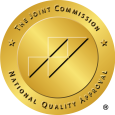Standardized treatment plans are predetermined, research-based protocols or guidelines used in the medical field to standardize and optimize the treatment of particular medical illnesses or procedures. By monitoring conformance to these plans and results, these treatment plans can assist healthcare organizations in tracking and improving the quality of care. To give patients the best care possible, it is crucial to be aware of their limitations and strike a balance between standardized care and the need for personalized treatment plan when appropriate.
It’s important to note that while personalized medicine holds great promise, it does not apply to all medical conditions, and its implementation can present challenges related to privacy, access to genetic data, and the need for specialized expertise. Nonetheless, it represents a significant advancement in healthcare, offering the potential for more precise and effective treatments.
Continue reading to learn about the benefits of individualized treatment plans, the drawbacks of a one-size-fits-all strategy, and the significance of unique characteristics in treatment.

What Are Personalized Treatment Plans?
Personalized healthcare strategies that consider a patient’s distinctive traits, such as genetics, medical records, way of life, and personal preferences, are known as personalized treatment plans, commonly referred to as personalized medicine or precision medicine.
These programs allow medicines expressly created to address a patient’s illness’s molecular or hereditary aspects, known as targeted therapies. This may lead to more efficient treatments with fewer adverse implications.
Components of a Personalized Plan
A personalized healthcare plan is an evolving work that responds to the patient’s shifting health status and the availability of new therapies and knowledge. The objective is to deliver patient-centered care that maximizes results while honoring each person’s needs and preferences.
It has a number of components that differ according on the person’s circumstances and medical condition, but they generally involve:
- Patient Information – A thorough overview of the patient, covering information on their medical background, demographics, lifestyle, and interests.
- Medical History – An in-depth narrative of the patient’s previous health issues, procedures, therapies, and genetic medical history.
- Diagnostic Information – To precisely evaluate the patient’s health status, diagnostic test data from test findings, imaging examinations, and genetic analysis is utilized.
- Treatment Goals – Well-articulated treatment objectives that reflect the patient’s desires for the individual treatment plan
- Lifestyle Recommendations – Guidance on establishing lifestyle changes to support general health and wellbeing, such as dietary habits, physical activity, coping with stress, and substance use.
The Problem with One-Size-Fits-All Treatment Plans
One-size-fits-all therapy strategies can be problematic due to several factors, including the absence of individualization, healthcare inequities, and limited efficacy, eventually leading to patient discontent, unfavorable results, and countless missed opportunities.
People are unique, and their health conditions, needs, and preferences vary widely. A standardized treatment plan may not account for these individual differences. What works well for one person may not work for another, and some individuals may require specific accommodations or modifications to their treatment.
Furthermore, a generic treatment plan might need to address the specific issues or root causes of a person’s health condition. This can result in inefficiency, as patients may need the most appropriate care. Sometimes, patients may undergo unnecessary treatments or tests, increasing healthcare costs.
To address these issues, healthcare providers and systems are increasingly moving toward personalized medicine and treatment plans considering individual characteristics, genetics, lifestyles, and preferences. Personalized medicine aims to deliver more effective and efficient care by tailoring treatments to each patient’s specific needs, ultimately leading to better health outcomes.

The Importance of Individual Differences in Treatment
It is impossible to understate the significance of individual variances in healthcare therapy. It is crucial to take each patient’s particular traits, requirements, and personal tastes seriously to enhance treatment effectiveness and reduce the dangers of standard therapy.
Patients are more likely to stick to treatment regimens when they have a stake in the decision-making process and can see that their medical professionals are respecting their preferences. Such regard may result in increased adherence and improved health results.
In addition, recognizing individual differences is essential for addressing healthcare disparities. Specific populations may be at higher risk for certain diseases or have unique healthcare needs. Customized treatment plans can help reduce disparities by acknowledging and accommodating these differences.
Most importantly, plans for treatment that take individual traits to heart help hasten the healing process. When patients’ care is customized for their specific health status and needs, they will likely recuperate more quickly.
Advantages of Personalized Treatment Plans
Personalized treatment plans, which tailor healthcare interventions to an individual’s unique characteristics and needs, offer several advantages in healthcare. The continued advancement of personalized medicine and the integration of genomics and other individualized approaches in healthcare are expected to enhance these benefits further.
Targeted Treatments
Personalized care enables the creation of concentrated therapies that are catered to the unique features of a patient’s disease. When treating intricate and rare disorders, this can be especially helpful.

Lower Risk of Side Effects
By considering individual differences, healthcare providers can avoid treatments that may not be well-tolerated or are known to interact negatively with a patient’s specific biology. This minimizes the risk of adverse effects and complications.
Enhanced Doctor-Patient Relationship
Personalized treatment plans entail interactions between medical professionals and patients better to understand their particular requirements, preferences, and objectives. This open and cooperative dialogue fosters a deeper connection between doctors and patients.
Targeted therapies encourage patient-centered treatment and trust. It promotes teamwork, where the patient and healthcare professional collaborate to obtain the most remarkable health outcomes. It also promotes empowerment and respect for individual autonomy.
Quicker Recuperation
Because they are created to be mindful of each patient’s health status and characteristics, individualized treatment programs could accelerate the healing process while minimizing the dangers of non-targeted therapies.
A rehabilitation facility can also help speed up your recovery. Through restoring function, preventing problems, managing pain, and improving strength and mobility, rehabilitation is a thorough and interdisciplinary strategy that quickens recuperation time.
Optimized Resource Use
Pharmacogenomics, a facet of personalized medicine, assists in selecting the best treatments and dosages for certain patients, lowering the possibility of medication-related problems and enhancing overall drug administration.
Patients receive the care best suited to their needs to lessen the possibility of unnecessary tests, treatments, and prescriptions. This reduces healthcare expenses over time.
Greater Patient Satisfaction
Personalized treatment strategies highlight patients’ unique needs, preferences, and values. Patients tend to be satisfied with their care when they believe their particular circumstances are respected and considered.
A Better Future Awaits
Personalized treatment plans have gained prominence in healthcare because they aim to provide more effective and efficient care by tailoring treatments to individual patients. While personalized medicine is still an evolving field, it has already been proven promising.
In contrast to non-targeted and generic treatments, personalized programs offer patient-centered care in which healthcare providers prioritize the patient’s needs. In the end, this results in improved outcomes as well as minimized risks and expenses.
Treating each patient differently, depending on their unique needs and lifestyle, is crucial in contemporary healthcare. Better patient outcomes result from acknowledging and accepting these disparities, and supporting a more patient-centered, fair, and productive healthcare system.

Knowing what needs to be addressed is a start, but taking action is more crucial.
Luckily, you don’t have to figure everything out on your own. For those who wish to jumpstart their road to recovery, Another Chance Rehab offers a variety of treatment options, including detox and intensive outpatient care. Contact Another Chance Rehab immediately if you or a loved one needs guidance to overcome an addiction.
There is nothing more beautiful than giving life another chance. Come with us at Another Chance Rehab as we embark on a life filled with tremendous joy and fulfillment.






